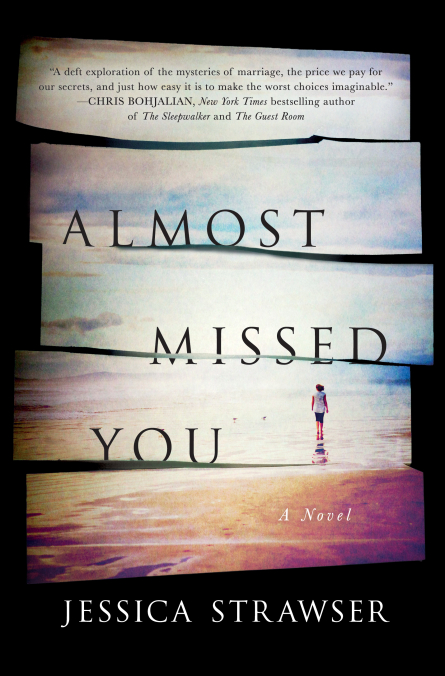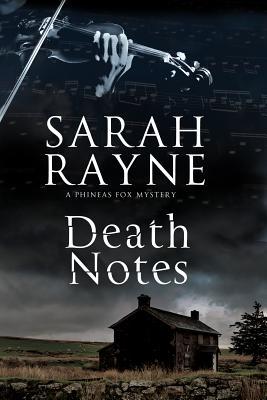
I subscribe to Writer’s Digest, so as a would-be debut novelist myself, I paid attention to what editor-at-large Jessica Strawser had to say in those pages about her journey in writing, selling, and marketing her debut novel, Almost Missed You, which is a combination of women’s fiction and domestic suspense, a kind of Gone Girl without fangs. I was very curious to read the book if for no other reason than to see what someone who deals everyday with instructing others in the craft of writing would write on her own time.
The book was about what I expected in terms of depth, craft, and ambition, but in no way a disappointment. This is a solid debut and will create plenty of readers eager to read Strawser’s next.
The book, somewhat on the premise of David Nicholls’ One Day, happens all in the month of August, but Augusts spanning the years 2010 to 2017. The opening chapter gives us the hook, which is, as the jacket copy tells us, that during their family vacation to a Florida beach named Sunny Isles, Violet returns to her hotel room to find her husband has disappeared with their 3-year-old son, leaving no note, no motive, and no trace. The second chapter takes us back to the very first meeting on that very same beach between Violet and Finn, where their meet-cute is interrupted by a stranger’s medical emergency and a distressed child. Their story of near-misses thereafter is said to be so marvelously one of those ‘meant-to-be/twists of Fate’ tales that people can’t stop asking them to tell the story, until they themselves almost can’t believe how meant to be they are.

Which turns out, of course, to be a big fat lie. The novel isn’t interested, thankfully, in fate, romance, or what ‘meant-to-be’ even means. It is more interested in the kinds of wounds we carry, the secrets we bring even to our relationships, and the ways we hurt and betray the people we most love. All excellent fodder for fiction, which should make this an excellent book.
I stumbled over two qualities, however, in the characterization and the storytelling. We never actually *see* how or why Finn and Violet are so marvelously suited or ‘meant to be.’ We never see them telling their story to friends or strangers who coo and stare. We’re simply reminded frequently by the author that this is the case. I occasionally had the sense while reading that certain plot points or situations were invented to fulfill this interesting premise, rather than the organic and inevitable and rather shocking choices made by characters driven with powerful needs, fears, and internal motivations. In short, several moments in the Violet-Finns storyline felt contrived, not organic, the characters conforming to the story, rather than running it.
The mysteries keep coming, which is one strong point in the story’s favor. The main mystery of where Finn went with Bear is answered by chapter 3, when he shows up to blackmail/torture/extort his so-called best friend, Caitlin, but there are plenty more secrets to surface and wrong turns taken after that. It’s easy to keep reading, for no other reason than to find out how Violet is going to get Bear back.

Yet even as a desperate and bereaved mother, Violet, I have to say, never captured me as a character. She has no depth, no secrets, no urgent motivations, and no point to her existence other than to be the perfect mother to Bear. Since I fail daily to be even an adequate mother to my children in real life, I resent these perfect characters in life and fiction. The plot leaves Violet with little to do other than cry, get drunk, wonder what happened, and—when she does show any energy or action—be mean to the people who are trying to help her. This last makes her a bit easier to relate to, but her ongoing righteousness didn’t win me over at all.
She’s so good as to be uninteresting, and frankly I wished that Violet had a little more inner darkness. Her scenes, which are mostly her being bereaved (at least in the present August of the story, 2016), would have been more interesting if Violet had done some soul-searching and found moments she wasn’t, in fact, the perfect wife and mother. If she sometimes ignored or got impatient with Finn. If she sometimes were petulant or demanding. If she occasionally just got exhausted with her 3-year-old, as some mothers do, and locked herself in the bathroom while he cried himself to sleep. Even if she had only done this once, but it came back to torment her in the question of ‘did I deserve to have my son taken away? Am I a bad wife/person/mother?’ I would have found her much more fascinating. I like internal darkness, I admit.
The Finn sections have the same trouble as the Violet sections. I had the same difficulty feeling Finn’s pain, though we do learn his motivations, as well as his secrets. But again, instead of having traces of bad, his only real flaw is that he is emotionally stunted by grief and acting like a wounded animal rather than a responsible adult. This is a little more interesting as a character, but as he spends most of his time in the present moment of the story feeling bad about his moral choices, there isn’t, again, a lot for him to *do*.

But Caitlin, for me, was a different matter altogether. I admit, when Chapter 3 began, I wondered why we needed her. I had already failed to really care about either of the two main characters, even though I am a mother of young children whose perfect nightmare involves some harm to them, and so should have identified strongly. But once Finn comes on stage, taking her off guard, we learn Caitlin has a secret. Caitlin is forced to an impossible choice. Caitlin did something wrong that Finn knows about, and he could destroy her whole family and devastate her, just as he’s destroyed his own family and devastated his wife.
NOW, I thought, things are interesting. We have a character with internal and external obstacles, a character whose motivations are clear and relatable, a character who is again and again going to act in ways she thinks make sense and will solve the problem, and are just going to get her into more and more trouble. Everything that happens to Caitlin is somehow a catastrophe related to a choice she made.
And THAT, friends, is how character becomes plot.
I noticed that, in Violet and Finn sections, I very often skipped paragraphs, or forgot the paragraphs I just read. They simply didn’t stick with me. With Caitlin’s chapters, I was glued to every line. What was going to happen next? What would she do? I both could and could not see it coming, which is the sweet spot of suspense that you want your reader to be in.

With Violet and Finn, I very often felt that their responses answered some question a beta reader or editor had flagged in the text: “Would Finn really—? Wouldn’t Violet just—?” And then, in an act of dutiful revision, came the statement or declaration of motives that would exactly answer the question in the reader’s mind. Caitlin did none of this. Caitlin kept us guessing. And by the end of the story, when everything is in the biggest stew possible—as it should be, at this stage in the plot—Caitlin’s husband George stepped in with a big reveal of his own and stole the scene, the story, and my heart.
By the end of the book (spoiler alert) I didn’t even care about the final confrontation between Violet and Finn. I didn’t see that there was anything to resolve. The only real question was how long Finn would be in jail for parental kidnapping. But I was desperate to know what was happening between Caitlin and George, now that both of their big secrets had blown open, their lies to one another exposed, their bad choices out on the table for everyone to see. They went off stage and disappeared.
This was the final piece of evidence that suggested to me that, while the book is structurally sound and competently written and carefully plotted and edited and revised, with a marketable premise in place, the part I engaged with was not what the author thought was the most important part of her story. This book, for me, is not about Finn’s escapade and Violet’s being blindsided or even about a wife whose perfect marriage falls apart. This book is about grief, secrets, relationships, how we talk to one another, how we figure out what we want, how we bear to keep going, and how we respond when the people we love are in danger or hurt. Caitlin and George’s story is about all those things even more urgently and compellingly than Violet and Finn’s, and yet the book closes on Violet and Finn’s story—even going to far as to append an epilogue that I felt in no way matched the emotional arc that any of the characters had undergone—without realizing that the real story isn’t complete without seeing what happens to Caitlin and George.
These aren’t small flaws, and there’s an additional hindrance in the book’s readability in that there are large chunks of exposition—the author telling us what the characters did and felt—that could have been better communicated in scene. Those were the parts I would have flagged as an editor, anyway.
All this said, it’s still a readable story, and the book deserves all the praise given it. I look forward to reading Strawser’s next (possibly a study in how a sophomore novel compares to a debut?) and in the meantime, I’ll continue to enjoy her columns in Writer’s Digest. And continue to apply what I learn from that magazine and what I learned from this novel in trying to sell books of my own creation.


A very insightful review and very helpful to me as an author. Thank you for sharing!
Glad you found it helpful, Teresa!